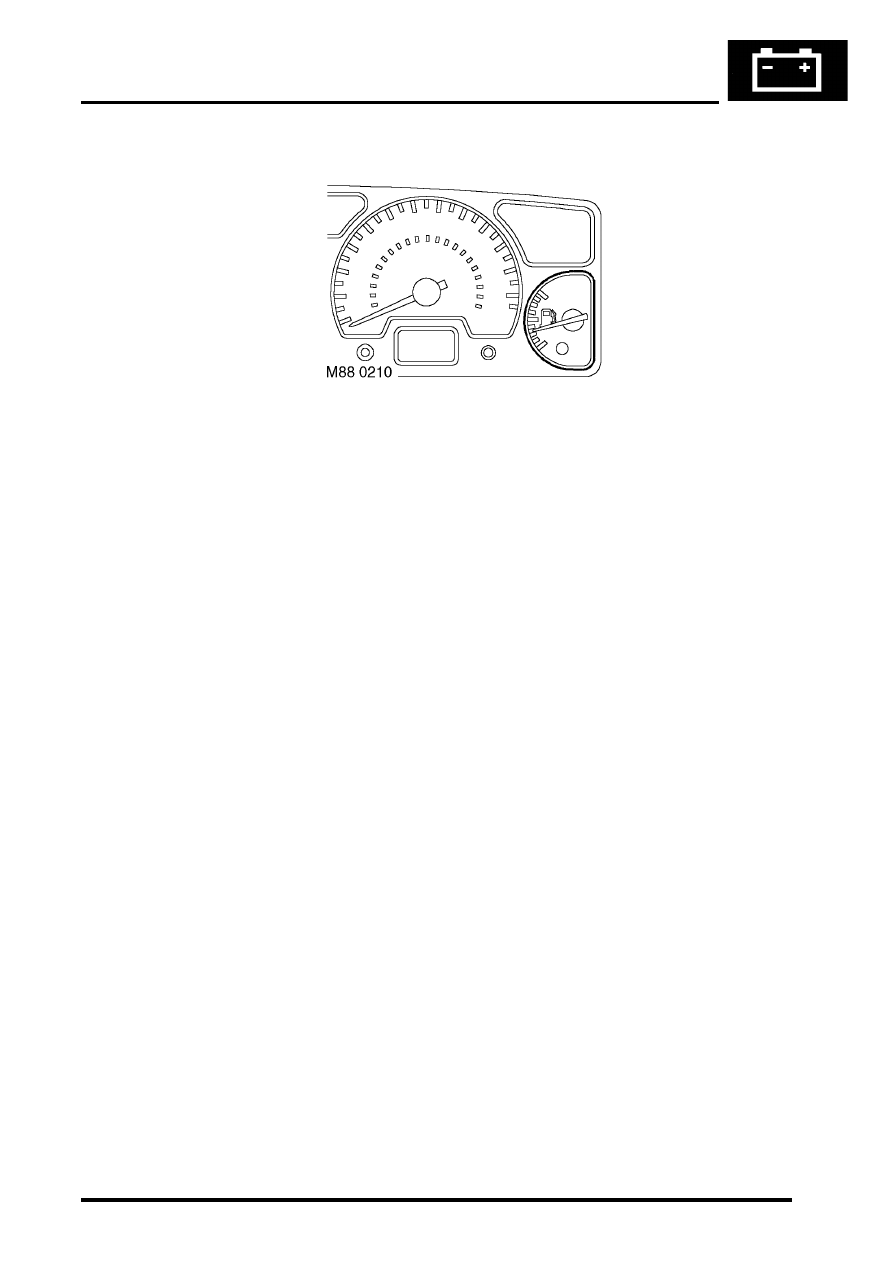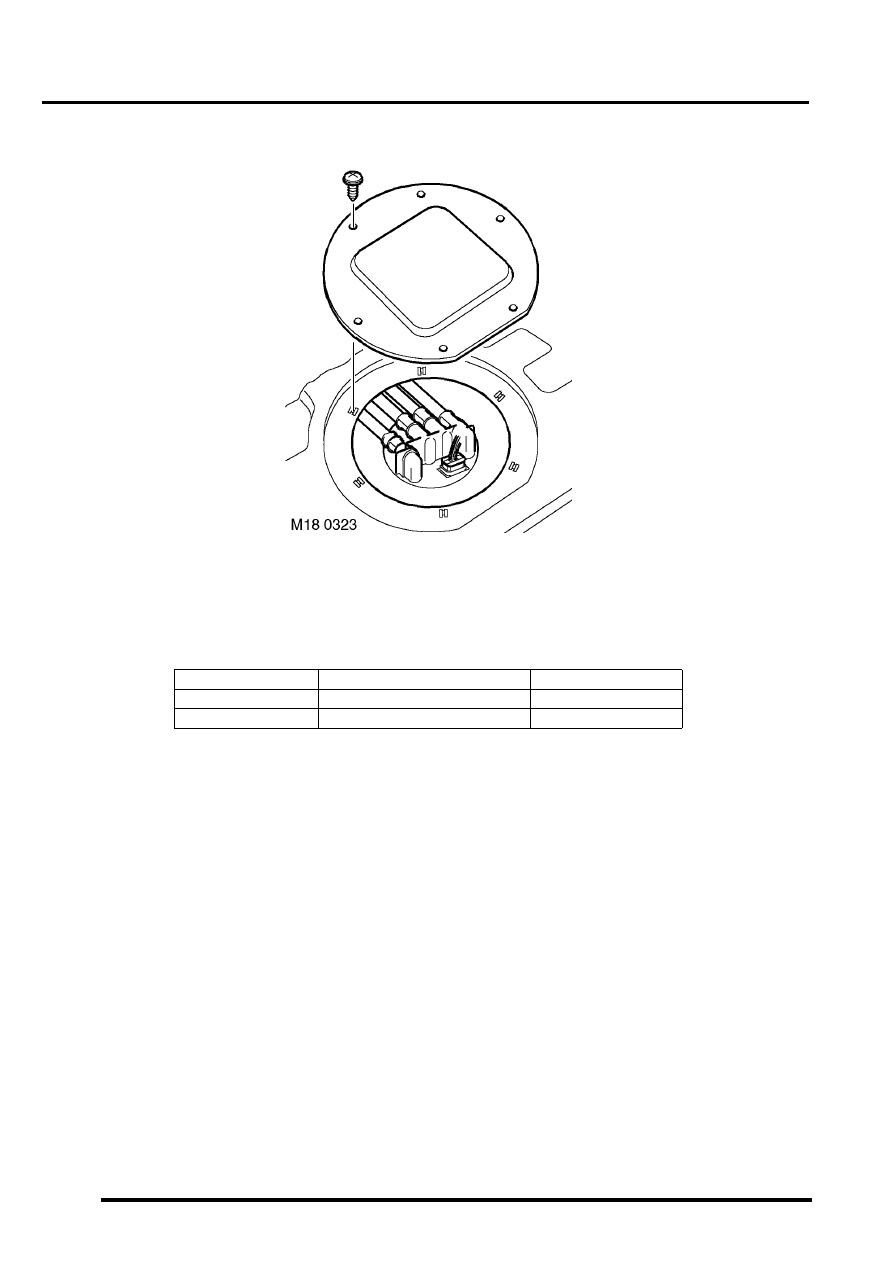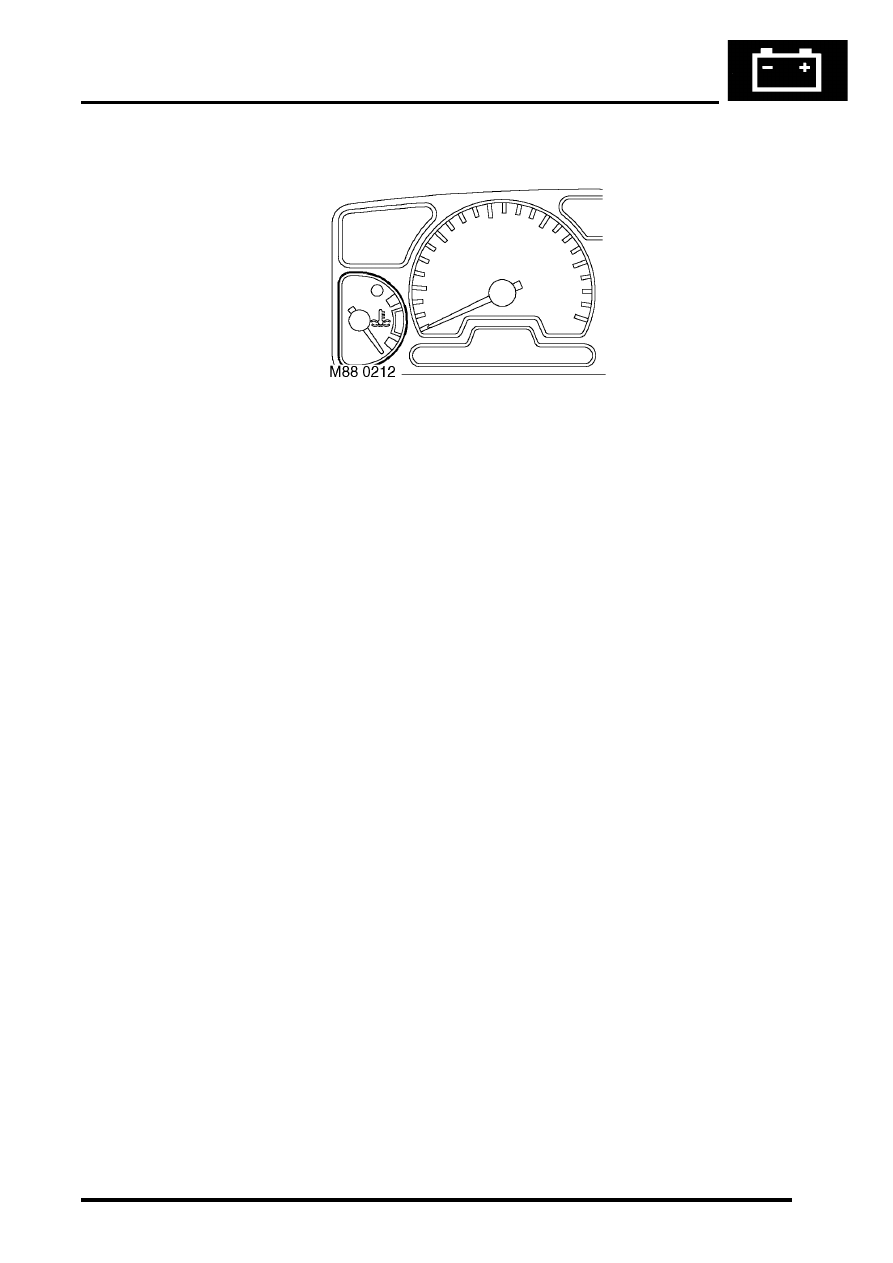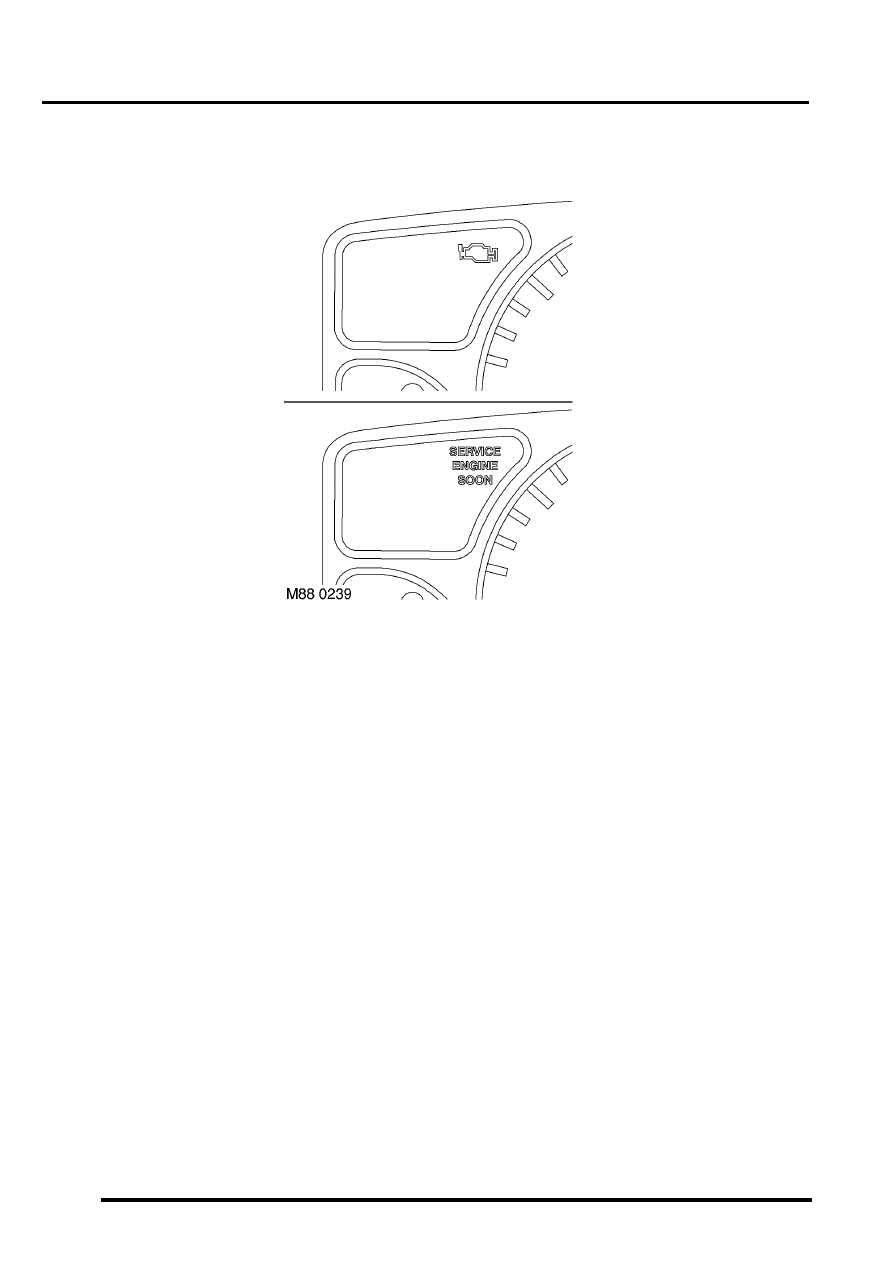Discovery 2. Manual — part 366

INSTRUMENTS
DESCRIPTION AND OPERATION
88-9
Fuel gauge
The fuel gauge is an analogue gauge that indicates the level of fuel in the fuel tank with the ignition on. The fuel gauge
returns to 0 with ignition off. The gauge reading is proportional to the level of fuel in the tank. It is a damped action
gauge to prevent erroneous readings caused by fuel moving in the tank. The damping action is minimised when the
ignition is switched on to give an accurate reading within 2.5 seconds.
The signal input for the fuel gauge is from the tank sender unit, it is a variable voltage signal proportional to the level
of fuel in the tank. The instrument pack provides the power via fuse 27 to the fuel gauge, then from the gauge on to
the fuel tank sender unit. The earth path return circuit of the sender unit is connected to the instrument pack.
A low fuel level signal is provided for the ECM when the sender resistance is greater than 158
±
8 ohms, this is used
to create a fault code indicating low fuel level during misfire diagnosis using TestBook.

INSTRUMENTS
88-10
DESCRIPTION AND OPERATION
Fuel tank sender unit
The fuel tank sender unit is combined with the pump. It contains a variable resistor with change in resistance
proportional to the change in level of fuel in the tank.
The resistance of the fuel tank sender unit in relation to tank contents and gauge display is shown in the table below:
The fuel tank sender unit input voltage feed is supplied from the fuel gauge. The earth path return circuit of the sender
unit is connected to the instrument pack.
Tank contents
Sender resistance, ohms
Gauge display
Empty
245
0
Full
19
1

INSTRUMENTS
DESCRIPTION AND OPERATION
88-11
Engine coolant temperature gauge
The engine coolant temperature gauge is an analogue gauge with three sections: cold temperature; normal operating
temperature; high temperature. Under normal engine operating temperatures the engine coolant temperature gauge
will display in the centre of the gauge. When the engine is cold e.g. from first start-up, the coolant temperature gauge
will display in the cold band. When the engine is over heating the temperature gauge will display in the high
temperature band. If the engine coolant temperature gauge receives no input or the input is out of range the
temperature gauge will read cold and the high coolant temperature warning lamp will be illuminated.
The input signal is a PWM signal from the engine coolant temperature sensor via the ECM. The power input for the
high coolant temperature warning lamp is supplied by the instrument pack via fuse 27. The ECM controls the earth
path to illuminate the high coolant temperature warning lamp.

INSTRUMENTS
88-12
DESCRIPTION AND OPERATION
Malfunction Indicator Lamp (MIL)/ SERVICE ENGINE SOON warning lamp
The MIL/service engine soon warning lamp within the instrument pack utilises an amber LED and a clear legend. If
an emission related fault is detected by the engine management system or, on automatic gearbox models, the EAT
ECU, the ECM will illuminate the LED providing the driver with a visible warning.
The warning lamp will illuminate whenever the vehicle is driven until the fault is repaired, and the ECM fault code
memory is cleared using TestBook.
When the ignition is switch on the ECM carries out a self-test function of the lamp. The lamp will illuminate for 3
seconds then extinguish if no faults exist. If a fault is present the lamp will be extinguished for 1 second before
illuminating again to indicate a fault exists.
There are two configurations of the legend for the warning lamp:
l
NAS and Canada = SERVICE ENGINE SOON text.
l
All other markets = MIL SAE J1930 symbol.
The power input for the LED is supplied by the instrument pack via fuse 27. The ECM provides a voltage to the
instrument pack Central Processing Unit (CPU) to control the warning lamp:
l
< 1.8 volts = warning lamp on.
l
> 7.7 volts = warning lamp off.

Нет комментариевНе стесняйтесь поделиться с нами вашим ценным мнением.
Текст